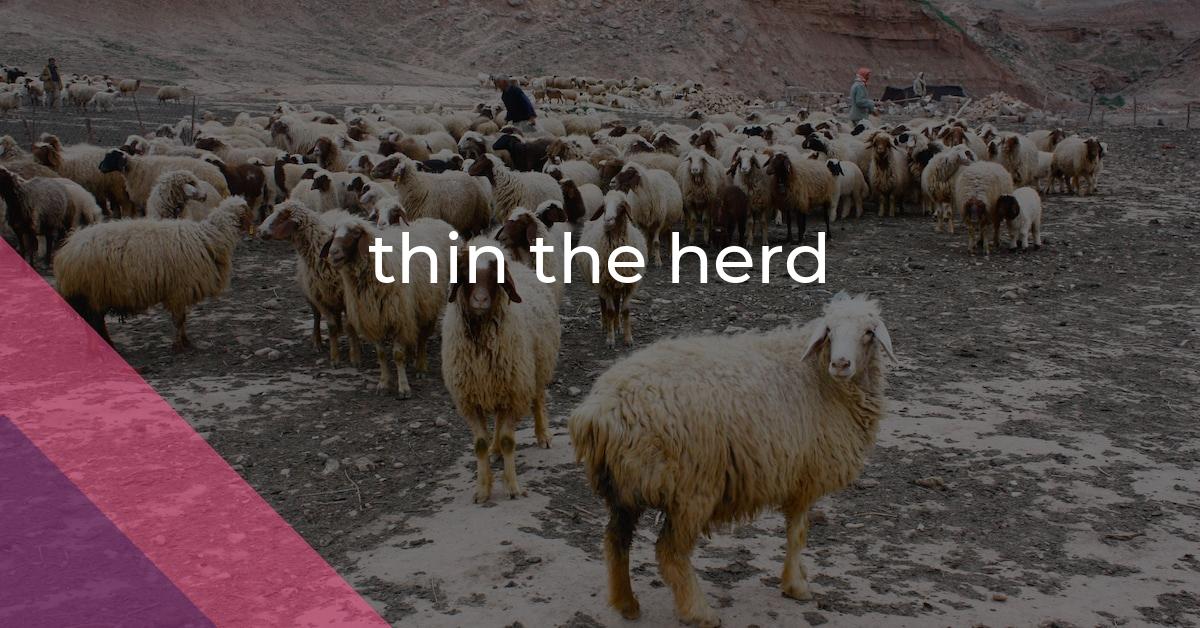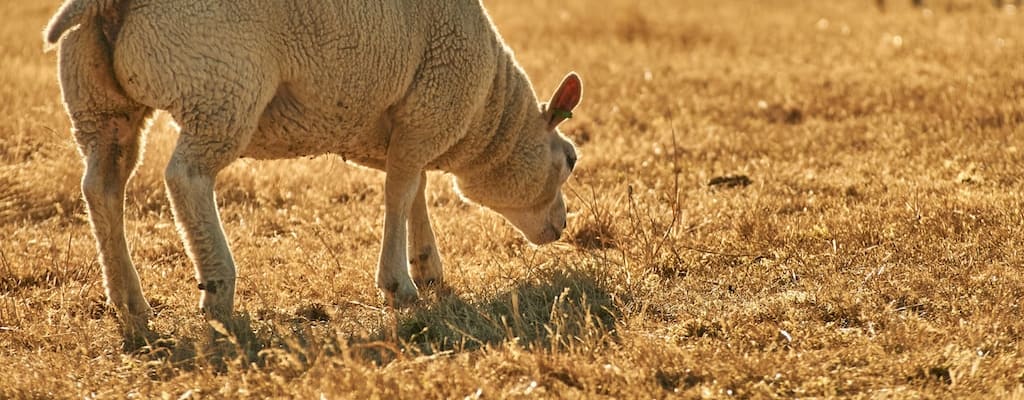thin the herd: Idiom Meaning and Origin
What does ‘thin the herd’ mean?
The idiom "thin the herd" means to reduce the number of people or animals in a group, typically by eliminating the weakest or least able. This is often used metaphorically to describe a situation where only the strongest or most capable individuals survive or succeed.

Idiom Explorer
The idiom "weed out" means to remove or eliminate unwanted or unnecessary things or people in order to improve the overall quality, efficiency, or effectiveness of a group or situation.
The idiom "vanish into thin air" means to completely disappear or vanish without a trace, as if one has evaporated into nothingness.
The idiom "under one's thumb" means to be controlled or dominated by someone, usually in a relationship or a situation where one person has significant influence or power over another.
The idiom "turn the tide" means to change the course or direction of a situation, typically in a positive way, especially when it seemed to be going against someone or something.
The idiom "turkey shoot" refers to a situation where someone easily and effortlessly achieves success or victory, usually at the expense of others who are powerless to resist. It can also be used to describe a situation where there is an easy target or a one-sided competition.
The idiom "tread carefully" means to proceed cautiously or with great care and consideration, especially in a sensitive or delicate situation.
The idiom *tough sledding* refers to a difficult or challenging situation that requires great effort to overcome.
The idiom "toughen up" means to become emotionally or mentally stronger and more resilient, often by facing and enduring difficult or challenging situations.
The idiom "throw out" means to dispose of something, to get rid of it. It can also mean to eject or expel someone from a place or a group.
The idiom "throw in the towel" means to give up or surrender in a difficult or challenging situation.
Origins Explored
The idiom "thin the herd" is a commonly used phrase in American English, with a figurative meaning associated with reducing the number of people or things in a group. Its origin can be traced back to the practice of animal herding. In this practice, herdsmen would selectively remove weak or unproductive members from a herd to improve the overall health and productivity of the group. This process is similar to the challenge of trying to "herd cats," where it can be difficult to control or manage a group of individuals who have different opinions or tendencies.
In the broader sense, "thin the herd" can be used to describe the act of weeding out undesirable or less capable individuals or elements. By removing these burdensome members, whether it be in a business downsizing its workforce or a sports team eliminating underperforming players, the overall performance and quality of the group can be strengthened. This process can be seen as a way to "weed out" the weaker or less productive individuals or elements, in order to allow the stronger ones to prevail.
When it comes to natural selection, "thin the herd" can be likened to the concept of the "thick and thin" process. It refers to the idea that in order for a species to survive and thrive, there must be a natural elimination of the weaker individuals. This can be seen as nature's way of "thinning the herd" by allowing only the fittest to survive and reproduce. This process is similar to "thinning the herd" in a figurative sense, where the removal of burdensome or less capable individuals allows the stronger ones to prevail and thrive.
Another related idiom that can be associated with "thin the herd" is "the thin end of the wedge." This phrase is used to describe a small and seemingly insignificant change or action that can lead to more significant consequences over time. When applied to "thin the herd," the idea is that by removing a few individuals or elements, it can eventually lead to a larger impact or change within the group. This is similar to the act of "thinning the herd," where the elimination of a few burdensome or less capable members can have a ripple effect and positively impact the overall performance or quality of the group.
Lastly, the idiom "thin the herd" can also relate to the challenge of "threading the needle." This phrase is often used to describe the act of navigating through a difficult or narrow passage with precision and skill. When applied to "thin the herd," it implies that in order to successfully remove the burdensome or less capable individuals, one must carefully navigate and make strategic decisions. This can be seen as a way to "thread the needle" in order to achieve the desired outcome of improving the overall quality or performance of the group.
Overall, "thin the herd" is a commonly used idiom that has its roots in animal herding practices. It has acquired a metaphorical meaning over time, signifying the deliberate reduction or elimination of individuals or elements that are considered burdensome or less capable. Whether it be in the context of business, sports, or natural selection, "thin the herd" represents the idea of improving the overall quality or performance of a group by removing undesirable members. However, it is important to approach the usage of this idiom with caution, as it may have negative connotations in certain contexts. It is crucial to consider the sensitivity and potential misinterpretation or offense that may arise from using this idiom.
Example usage
Examples of how the idiom *thin the herd* can be used in a sentence:
- The natural disaster acted as a catalyst to thin the herd of wildlife in the forest.
- During the recession, many small businesses were forced to close, thinning the herd of competitors.
- The new management implemented stricter performance evaluations to thin the herd of underperforming employees.
More "Survival" idioms



